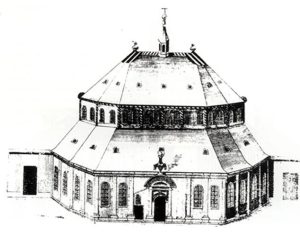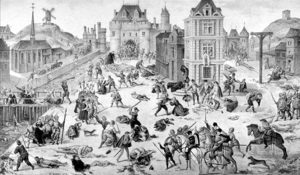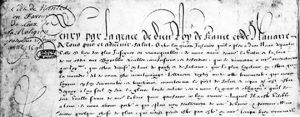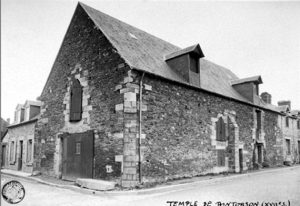The Petit-Quevilly Temple, an original regional architecture
Severe repression was inflicted as early as 1562, more than 600 victims were killed in Rouen before the Saint-Barthélémy massacre. The Edict of Nantes (1598) restored peace and enabled the construction of a new temple outside the city in Petit-Quevilly.
Outside the city, as stipulated by the Edict of Nantes, the Petit-Quevilly temple was built on a centred plan. It was a dodecahedron about 30m long and maximum 22m high, lighted by 60 double windows, with a skylight on each side. It was built from 1600 on and completed in 1601.
The walls of the edifice were built on firm foundation in brick and timber, like the one built by the Protestants in Dieppe in the same period.
A work of art in acoustics
No pillar inside, the whole woodwork rested on a central keystone.
A three-tiered tribune featured on all twelve sides ; the pews in the centre and along the twelve sides enabled worshippers to focus on the pastor’s pulpit and the building to hold large congregations.
In 1685, at the Revocation, the Petit-Quevilly temple was destroyed.






